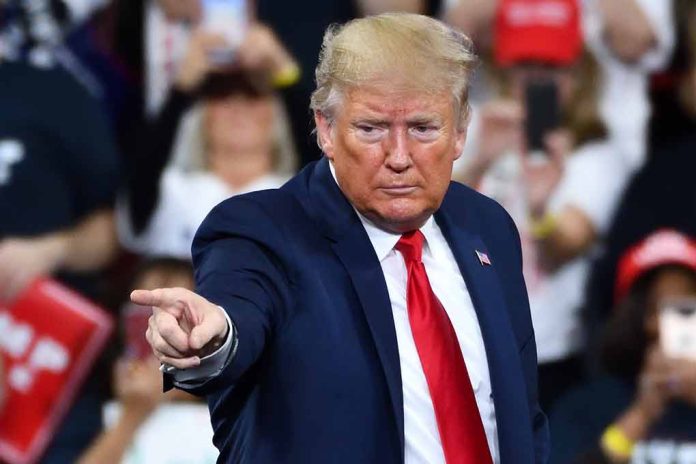
President-elect Donald Trump vows to reinstate federal executions, challenging Biden’s recent commutations of death row sentences.
At a Glance
- Biden commuted 37 out of 40 federal death row sentences to life in prison without parole
- Trump promises to “vigorously pursue” the death penalty upon taking office
- Biden’s decision aligns with his administration’s moratorium on federal executions
- Trump criticizes the move as disrespectful to victims’ families
- Public support for the death penalty has decreased from 80% in 1994 to 53% in 2024
Biden’s Sweeping Commutations
In a significant shift in federal criminal justice policy, President Joe Biden has commuted the sentences of 37 out of 40 federal death row inmates to life in prison without the possibility of parole. This decision aligns with his administration’s moratorium on federal executions, except in cases of terrorism or hate-driven mass murder. Biden’s action reflects his long-standing opposition to the death penalty, rooted in his experiences as a public defender and his tenure in various public offices.
The President’s move leaves only three federal inmates on death row: Dylann Roof, Boston Marathon bomber Dzhokhar Tsarnaev, and Robert Bowers, responsible for the Tree of Life Synagogue shooting. These exceptions underscore the administration’s stance on cases involving terrorism or hate-motivated mass killings.
Trump’s Tough-on-Crime Response
President-elect Donald Trump has forcefully criticized Biden’s decision, promising to reinstate and actively pursue federal executions once he assumes office. Trump’s stance aligns with his previous support for capital punishment, as evidenced by the resumption of federal executions during his first term when 13 federal prisoners were executed.
“Joe Biden just commuted the Death Sentence on 37 of the worst killers in our Country. When you hear the acts of each, you won’t believe that he did this. Makes no sense. Relatives and friends are further devastated. They can’t believe this is happening!” – Donald Trump
Trump has pledged to target “rapists, murderers, and monsters” with the death penalty, emphasizing his commitment to what he terms “Law and Order.” This approach resonates with his base and those who believe in stricter punitive measures as a deterrent to serious crimes.
President-elect Donald Trump promised on Tuesday to “vigorously pursue” capital punishment after President Joe Biden commuted the sentences of most people on federal death row partly to stop Trump from pushing forward their executions.https://t.co/mg0XcrXwSM
— PBS News (@NewsHour) December 25, 2024
Implications and Public Opinion
The stark contrast between Biden’s and Trump’s approaches to federal executions highlights a broader ideological divide in U.S. criminal justice policy. While Biden’s actions reflect a growing trend towards reforming the system with an emphasis on fairness over retribution, Trump’s stance upholds a belief in maintaining strong deterrents against serious crimes.
Public opinion on the death penalty has shifted significantly over the past three decades. Support has decreased from 80% in 1994 to 53% in 2024, indicating a changing landscape in how Americans view capital punishment. This shift may influence future policy directions and political discourse surrounding criminal justice reform.
Challenges and Considerations
While Trump has expressed his intent to pursue more executions, experts like Douglas Berman suggest that implementing such changes could be challenging under existing laws. Trump may attempt to take over state murder cases, especially from states that have abolished the death penalty, but such moves would likely face legal hurdles.
“I’m inclined to think it’s still in sort of more the rhetoric phase. Just, ‘don’t worry. The new sheriff is coming. I like the death penalty,'” – Douglas Berman
It’s important to note that while the federal government’s stance on capital punishment can shift with changes in administration, over 2,000 individuals remain on death row in state courts, beyond the reach of presidential commutations. This underscores the complex nature of the death penalty debate in the United States, where federal and state policies can diverge significantly.
As the nation grapples with these conflicting approaches to criminal justice, the debate over the death penalty is likely to remain at the forefront of American legal and political discourse, with far-reaching implications for future policy directions.
Sources:
- Trump Promises to Pursue Executions After Biden Commutes Most of Federal Death Row
- Trump says he will pursue more executions after Biden commutes most of federal death row | PBS News
- Biden commutes most federal death row sentences to life in prison before Trump takes office
- Trump vows to pursue death penalty ‘vigorously’ after Biden commutations














